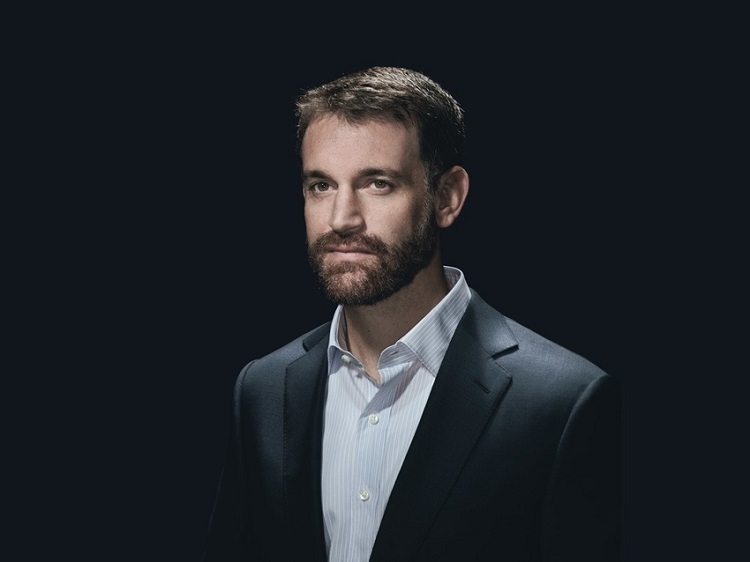Bail Bonding Reform's Top Backers and Nationwide Aftermath
News and Resources
Our Denver bail agents have said it for years: the only way that the cash bail system will ever get cleaned up is if there’s compromise amongst all parties and a certain amount of common-sense reform. Of course, what we think is “common-sense bail reform” compared to others is subjective.
In today's guide, our Jefferson County bail agents review two of bail reform's top donors and a few news stories highlighting its danger throughout the nation.
Is Common Sense Bail Bonding Reform the Answer?
Those of us who’ve worked diligently in the bail bond industry for most of our adult lives know that only compromise can offer some measure of hope, but to clear up any confusion: We will never support doing away with cash bail for all crimes.
Compromise seems to be what’s being considered right now in Ohio, at least in some circles where idealism is giving way to reality. In a recent editorial, a distinguished law professor and a litigation director should be applauded for their insistence that “bail reform can happen without risking public safety.”
David A. Singleton, executive director of the Ohio Justice & Policy Center (OJPC) and professor of law at NKU Chase College of Law, and fellow lawyer Mark A. Vander Laan, OJPC’s litigation director and former chair of Dinsmore & Shohl’s Litigation Department, wrote: “As two sober-minded lawyers who care about both community safety and commonsense criminal legal system reform, we wholeheartedly believe that bail reform can be achieved without jeopardizing public safety.”
They advocate reducing – but not eliminating – the reliance on cash bail for rich and poor.
Some People Never Learn
Like all other upstanding residents of Colorado, the typical bail bond agent is at a loss about the nationwide fury about cash bail reform. From our point of view, the wholesale elimination of cash bail is a recipe for disaster just waiting to be cooked up by people misinformed about the issues.
Bail bondsmen in Denver County and elsewhere know you simply can’t throw dozens of legislative bills at the problem and hope something will stick. And this notion that you can let bad people out of jail early or stroll out of court without paying bail and hope they’ll show up for the next court date, is ludicrous.
Weekly news reports showcase defendants who allegedly commit more crimes almost immediately after their early release from jail. Here are solid good examples we hope everyone chews on, including at your local bonding company in Englewood or Golden.
The Arnold Foundation Bankrolls Bail Bonding Reform

In case you didn’t know the driving force behind the recent spate of anti-bail efforts nationwide has been an entity called the Arnold Foundation. The non-profit foundation was started by John Arnold, a former executive of the disgraced Enron Corporation, and took up bail reform as its reason for being.
Since picking up the standard of bail reform the foundation has been telling anyone who would listen that bail bonds in America was a corrupt enterprise that victimized the poor. And that they had the answer to this corrupt system in the form of a computer program designed in secret that would negate the need for cash bail. That program alone would determine if a person should be either released or held. With the presumption being they should be released.
The foundation’s minions then spread out nationwide and tried to sell their program to gullible state legislators. To no one’s surprise they found plenty in places like New Jersey and California. But now, in a truly ironic twist, it’s the Arnold Foundation itself that’s reeling from charges of corruption. On October 4th lawyers for the foundation filed an 18 page criminal complaint against foundation director Denis Calabrese alleging that he stole millions of dollars from the organization and received huge kickbacks from various contractors.
According to the suit Calabrese is alleged to have exploited the foundation’s trust as part of a plan to steal millions. Lawyers for the foundation state that they only became aware Calabrese might have been up to no good when the government subpoenaed the foundation in connection with a tax fraud case they were pursuing against Calabrese. He would eventually plead guilty to tax evasion and hiding vast amounts of income from the government in May 2019.
The notion that those behind the foundation didn’t know their director was a wheeler dealer strains credulity when you consider the lengths most charitable organizations go to to vet their managerial team. But Arnold’s lawyers insist Calabrese pulled the wool over everyone’s eyes and in the process managed to steal over $2 million which he funneled into various offshore accounts.
Calabrese also allegedly had undisclosed financial connections with two contractors hired by the foundation: Raconteur Media Company and Pathfinder Communications. Over the course of several years the Arnold Foundation paid Pathfinder more than $5.6 million and Raconteur more than $750,000 for various services rendered to the organization with Calabrese allegedly pocketing a handsome percentage of that income.
The Failure of Risk Assessment
That a foundation started by a former Enron executive would have allegations of corruption leveled against it probably shouldn’t surprise anyone. But these allegations against the foundation’s director are just one piece in a developing puzzle regarding Arnold, its anti-bail crusade and its direction going forward.
The Arnold Foundation risk assessment algorithm was supposed to represent a fundamental shift in the way the criminal justice system worked. The bondsman - that convenient whipping boy for manufactured outrage - would be sent packing and countless of his “victims” would no longer be unjustly held while awaiting trial.
The problem is, the risk assessment algorithm has been an abject failure no matter how you measure it. As predicted, many of those “victims” who were allowed to walk free after being arrested were quickly re-arrested for committing other crimes. In addition, pre-trial detentions have actually increased in some states. At the same time the number of defendants failing to show up in court has skyrocketed. Since those people no longer have any financial incentive to appear.
Arnold Foundation Changes Course on Cash Bail Reform
As evidence of the failure of the Arnold risk assessment algorithm has piled up more and more states and counties have begun thinking twice about abandoning the centuries old bail bonding system. Right here in Jefferson County, Arapahoe County and Denver County legislators saw fit to reject the slow motion train wreck that is bail reform, much to the relief of Colorado civil society groups and taxpayers alike. And states like Missouri, Delaware and New Hampshire that had flirted with bail reform and the Arnold algorithm are now debating whether to change course.
This groundswell of opposition has not gone unnoticed in the corrupt halls of the Arnold Foundation. And in an abrupt move that took many by surprise it was announced recently that the non-profit will soon change its name to Arnold Ventures and become a for-profit company. It will alleged continue to “fight” for bail reform although it acknowledged that its own risk assessment algorithm hasn’t worked after all.
These are important developments in the battle against the self-serving, short-sighted, anti-bail movement. They signal there is yet hope on the horizon that common sense may ultimately win the day. But the struggle to reimpose some kind of order on the judicial system is far from over. And the effects of the Arnold Foundation’s assault on civility and justice are likely to be felt for years to come.
The Bail Project Funds Violent Felons' Release
Most people would agree that someone who poses no danger to the public should not be held in jail indefinitely just because they cannot afford to post bail. If the goal of The Bail Project was simply to identify such individuals and help them gain their freedom then one might say it was a noble organization with a noble cause. But affordable bail bonds are not the goal of The Bail Project.
Examining the Bail Project's Biggest Flaws

Who exactly is The Bail Project and why are they rushing to put potentially dangerous individuals back on the streets?
The Bail Project's primary objective is to undermine the very institution of bail by employing what it calls “bail disruptors”. The job of the bail disruptor is to circumvent the bail bond company by posting bail for anyone who cannot afford to post their own bail, regardless of the crime the person is accused of and regardless of their criminal history. It was Bail Project disruptors who bailed out both Garvin and Lang.
The Bail Project has been around for five years and has offices in 22 locations throughout the US. It raises money to pay for bail through crowdsourcing. The founders of The Bail Project are on record saying that what a defendant is accused of, and what they might do after being bailed out, is irrelevant. They, in their infinite wisdom, are focused on “the big picture” and if that means that murderers and rapists walk the streets next to your children, well, so be it.
The Bail Project's Top Priority: Fash Cash and Endless Perks
It's becoming increasingly clear that the work of The Bail Project and other organizations like them represent nothing less than a frontal assault on the public interest. But why? Well, there is more than a little evidence to suggest that these organizations, flush with millions of dollars in donations, are nothing more than a way for their directors to provide themselves six-figure salaries using anonymously donated funds. Robin Steinberg, for example, has granted herself an annual salary of $303,000 (plus expenses and other perks). That's a lot of money that could have gone to bailing people out.
Think we are exaggerating? Listen to David Gaspar, National Operations Director of The Bail Project. In a recent interview, Gaspar discussed why his organization would bail out potentially dangerous individuals before conducting a search of publicly available probable cause affidavits. These affidavits include information regarding the crime the person is accused of and whether they represent a threat to public safety.
“...for us to have to wait for that [the probable cause affidavit], there's more and more harm being inflicted upon an individual, not to mention the harms and the trauma that comes along with just being incarcerated in general.”
His only concern is that dangerous thugs might have their feelings hurt if they're forced to stay in jail while awaiting trial. And then there is this from Greg Lewin, former Director of the anti-bonding company Minnesota Freedom Fund who stated that what someone is charged with is “not the point”, before adding “F**k the courts.”
Anti-Bail Bills' Aftermath Throughout the U.S.
In California the much derided Senate Bill 10 which eliminated cash bail and gave unprecedented powers of detention to state judges only went into effect a few weeks ago. And New Jersey is only now coming to grips with the financial disaster caused by abandoning bail. With the judiciary there forced to appeal for tax hikes to cover the cost of the new no-bail system.
So even if the bail reform movement is stopped in its tracks today the after effects of the Arnold Foundation’s decade long war on the American justice system are bound to linger. Even as their director uses money allegedly stolen from contributors to defend himself against charges of corruption.
Multiple Indiana Men Bonded After Attempted Murder
In December of 2020, Marcus Garvin of Indianapolis was arrested and charged with stabbing a person at a local convenience store. Bail in that case was initially set at $30,000. That was later reduced to $1,500 against the objections of prosecutors, who considered him dangerous. Rather than calling a bail bond agent, Garvin's family reached out to The Bail Project who posted bail for him, free of charge. Seven months later in July 2021, Garvin was arrested again and this time charged with the murder of his ex-girlfriend Christie Holt.
Also in Indianapolis, a man named Travis Lang was arrested in January 2021 on charges of possession of cocaine. Records indicated Lang had a lengthy history of criminal activity and was awaiting trial for breaking and entering and burglary, among other things. Lang reached out to The Bail Project who posted bail for him no-questions-asked and he was released. 10 months later, on October 1st 2021, Lang was arrested for the murder of 24-year-old Dylan McGinnis.
In one case, a defendant is “facing two counts of attempted murder and domestic battery by means of a deadly weapon” related to a May 31st 2021, incident where the man charged at police. He has since been released on a $2,000 cash bond, which the judge in the case reduced from the original $80,000 surety. What sense does that make?
New York Bank Robber's No-Bail Release

An accused New York bank robber faces charges of the attempted robbery of two Big Apple banks, only a day after being released without bond for, you guessed it – attempted robbery charges. Makes you wonder who deserves a second chance?
Premature Missouri Release Causes Tragic Death
In April 2019, a Bail Project disruptor working in St Louis, Missouri bailed out Samuel Scott who had been accused of domestic violence. Scott promptly returned home and bludgeoned his wife to death. When faced with this appalling truth Bail Project founder Robin Steinberg stated “Domestic violence will not be resolved by keeping people in jail.” Maybe not. But Scott's wife would likely still be alive if Steinberg's cronies had not bailed him out.
The Texas Cash Bail Fight Is Getting Tougher
Texas has its share of problems, right? We’ll do our best to steer clear of invective and stay focused on a topic suddenly becoming near and dear to everyone in the Lone Star state – cash bail. What’s happening is Senate Bill 6, which on August 27 passed the Texas House on its second reading 82-37 along party lines and would require people to post cash bail in certain instances. The sub-headline of the news report makes it clear where battle lines have been drawn: “Supporters argue Senate Bill 6 is necessary to stem a rise in violent crime, while opponents argue it violates constitutional presumption of innocence.”
Here are the highlights of the proposed legislation, reinforcing the notion some folks are getting tough in Texas:
- Senate bill 6 bans judges from releasing defendants on personal recognizance who’ve been charged with a wide range of felonies.
- Senate bill 6 would also specifically ban awarding of personal recognizance bonds to a defendant accused of committing violent crimes while currently out on bail.
- The bill also seeks to limit the ways in which charitable bail funds could be used to pay to release defendants from jail, but without restrictions for the for-profit bail bond industry.
The last bullet point is of interest to everyone in our line of work. It seems as if some progress is being made to close loopholes within current legislation, but we can’t begin to comment on the personal motives of GOP leaders making these bills.
Thankfully, we can keep our mouths shut and let the other side speak for themselves: “Let's all be very clear – this is not bail reform. This is indefinite detention without trial for people in poverty, and Texas Republicans know it.”
Coming Soon to a Town Near You
Colorado residents who might be tempted to think that The Bail Project would never have any reason to set up shop here should think again. At the end of 2021, The Bail Project opened their first office in Brighton, CO. Meaning that they are already hard at work disrupting the bail system and releasing potentially dangerous individuals onto the streets of Denver, Lakewood, Golden and elsewhere.
Conclusion
The primary concern of anti-bail zealots is to undermine the bail system, not to provide 24-hour bail bonds for people who pose no danger but are being held because they can't afford bail. Their indifference to the public interest is evident every time they open their mouths. And the fruit of their labor is unfortunately all too visible in the form of the Samuel Scott's, Marcus Garvin's and Travis Lang's of the world.
Whether you live in Jefferson County, Arapahoe County or elsewhere in Colorado, maintaining the cash bail and working toward effective improvements to the bail bonding system is in the best interest of all state residents. Rather than endanger public safety by passing dangerous bail reform bills, it's crucial to resist reform advocates' flawed rhetoric in the name of safety and common sense.
Contact Info
Tayler Made Bail Bonding is available 24 hours a day and 7 days a week.
(303) 623-0399email@taylermadebailbonding.com
3595 South Teller Street
Suite 300A
Lakewood, CO 80235
@TaylerMadeBail

